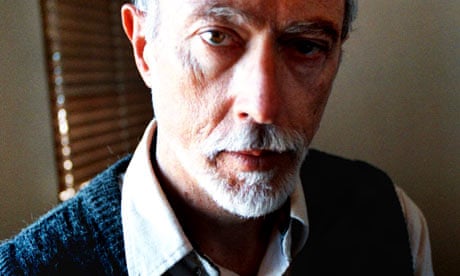Elizabeth Costello by J.M Coetzee -- Chapter 6 summary
Costello has been invited to talk about the problem of evil in the world. This is because she gave a talk in which she compared animal slaughterhouses to the holocaust and people thought she was belittling the holocaust. She thinks it’s futile to talk about evil and she’s also wary of defending herself but she agreed because of a novel she was reading at the time she received the invitation. The book contained a description of the execution of holocaust victims by hanging and it made her sick and inspired/motivated her to speak of evil.
The paper she agreed to give was on the topic “witness, silence and censorship”. She has lately come to believe that we live in a capitalist (“illimitable endeavor”) world. She has also come to believe that reading and writing do not always improve one. In her lecture, she wonders if Paul West, the author of the holocaust book, was not permanently scarred by his exploration of the topic. In the lecture, she proposes that paul’s soul may have been scarred by his writings and she discovers he will be attending the conference! Once she would have respected the taking on of such a task as West did, but now she is doubtful. She is determined to change her paper*.
She recalls an incident when she was 19. She was abused by a stranger she refused to have sex with. She has kept silent about this evil and wonders if her intent is to demand of West the same silence. She believes that West would rather tell a story than do good, and that evil is transferable through mediation on it. She fears to think the response she will get; she is sure West will be defended and also she is wary of criticizing a fellow writer. But still, she believes that evils are better left untouched in the past. She decides to preserve the strain of her paper and goes to speak to West about it. She explains to him the content of her lecture and he does not respond.
She gives the lecture and says that readers and writers of evil are harmed by what they read. An audience member proposes that perhaps she just has weak powers of discernment and stronger readers will not be affected negatively but will be able to exert their judgment. She responds that you have to read it, be engulfed by the book, in order to understand the evilness of it. She leaves.**
She tries to understand why exactly it is wrong. She realizes that West became evil when he invented words for the hangman. He assumed the role of evil to produce those words. She tries to reason with herself that this, after all, is the job of the author, her own job too. She wonders if her distaste for the horrific and evil is a result of old age if she just can’t bear the ugliness of her own affliction of evil on the world. She can’t articulate exactly what it is that bothers her but it seems to do with changing times.
Response
* This is where the empathetic response is tempered by reason. If we were limited to sympathy, maybe that would be true – that we would read something bad and then be inclined to imitate it. We would be entirely the sum of our surroundings, if our parents were psycho killers then wed be killers too. But reason comes in, and an audience member provides that refutation – he claims that they exercise reason which prevents them from being swept away. In her old age, Costello seems to have become oversensitive, and also to alight onto something else that Prinz notes – that people aren’t actually driven to action, that they have the correct moral theory but don’t always implement it, and so she supports the radical solution, preferring to err on the side of caution and have nobody reading any evil literature at all.
Coetzee shows both sides of the argument. The character is unable to articulate and we use our own reason to articulate and we realize what she's missing is reason.
** Reflection is needed. She just empathized with the wrong people that’s all, with the hangman instead of the jews which can happen but it implies nothing about the transformation in real life if you are serious about your ethics.









Comments
Post a Comment
Hey friend! 🌈 I can't help with your assignments but maybe other readers can. Good luck! 🤞